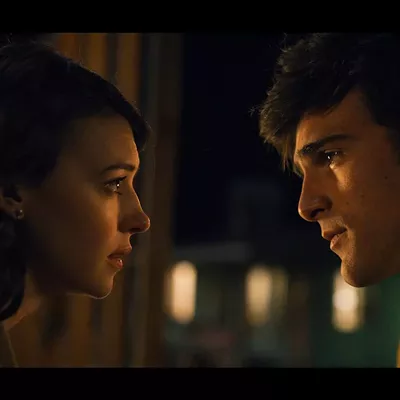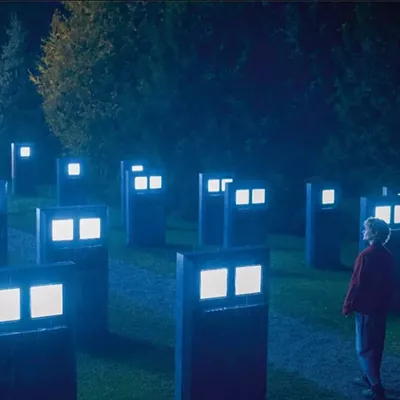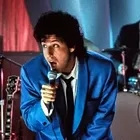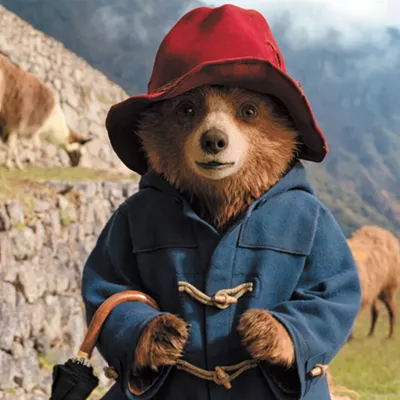Next year will mark the 70th anniversary of the debut of Godzilla, the now legendary kaiju, who made its first appearance in the 1954 Japanese film that bears its name.
I'm dating myself when I say that my first exposure to Godzilla came via a 1970s TV broadcast of the appalling Westernized version of the film, re-edited to shoehorn in Raymond Burr as an American reporter covering the kaiju attack on Japan. I have vivid memories of being a kid riveted to the screen (even by the Burr version)... and even more vivid memories of seeing the original Burr-free version during a big-screen revival showing as a grownup in the '90s and being like, damn, this is cinema. 'Cause the authentic 1954 Godzilla is pain personified (socialified?). It is Japan's collective horror post-World War II — the horror about the nuclear bombings of Hiroshima and Nagasaki, made plain, inescapable and, well, monstrous. This giant lizard movie is judging America — and maybe also Japan itself — and that's completely fair.
And now we have Godzilla Minus One, a reboot of the king of all monsters, and not too long after the reboot that was Shin Godzilla less than half a decade ago. Huge kudos to Japanese film studio Toho for taking Godzilla in multiple directions at once. Because Shin was all "What if Godzilla didn't make his first appearance until the 2010s?" in an obvious but totally appropriate nod to Japan's then-recent horrors (2011's tsunami and the Fukushima nuclear meltdown). And now Minus One rewinds the big lizard guy to before the 1954 debut, positing what would happen if the kaiju showed up to stomp Tokyo in 1945, the same year the nukes dropped and long before the postwar American occupation ended in 1952.
Never mind whatever you have been culturally programmed to think is the cheesiness of Godzilla movies: This latest is maybe the closest to the unironic horrors of the 1954 original that we've seen in the many, many Godzilla films since. This is the first Godzilla movie that is a period piece, that has the hindsight to look back on what Godzilla might mean to us in retrospect today rather than what it looked like at the time of its creation. And it doesn't have much to say that is generous about what we've brought upon ourselves.
In the new film, World War II has just ended when former kamikaze pilot Koichi Shikishima (Ryunosuke Kamiki) returns home to Tokyo... and don't think that the status of "former kamikaze pilot who actually survived the war" isn't a thing. As a Westerner, I cannot recall an instance of a film asking, softly and compassionately, whether the sacrifice of kamikazes was worth it and whether it was cowardice or wisdom that guided some to avoid it. It shocked me, in the best way, to see that in Godzilla Minus One.
Koichi is a gentle soul, and the movie is kind to him. Amid this post-war conundrum, Koichi returns to his bombed-out home to find rubble, an orphaned infant and an angry neighbor in Noriko Oishi (Minami Hamabe), who most emphatically does not believe that any kamikaze should have avoided his divinely appointed fate. Profound trauma haunts him, and everyone he encounters. It's heartbreaking.
The film builds so much bittersweet drama in the large concepts at its outset — "reject the past" and "hope for the future" and "build your own family out of the ashes" — that you kinda forget that we're waiting for a giant stomping lizard. It's all genuinely lovely how these people find something to live for and build upon amid the ruins and the chaos.
And then Godzilla arrives.
The beast appears in a horrific sequence that appropriately calls to mind nuclear bombing (complete with terrifying mushroom cloud, though this one is called up by kaiju fire breath). Acclaimed filmmaker and visual FX artist Takashi Yamazaki, who wrote, directed and did the VFX for this flick, just lets Koichi scream in fear and outrage and grief when he witnesses that kaiju mushroom cloud and the devastation it leaves in its wake.
This is not the only recent film that just lets people scream in agony in the face of unimaginable disaster. It feels like both an important step in our appreciation of how we approach trauma and a harbinger of cinematic depictions to come. The world is filled with so much trauma that even I want to scream out loud on the regular... and I've never even seen a kaiju. ♦






















